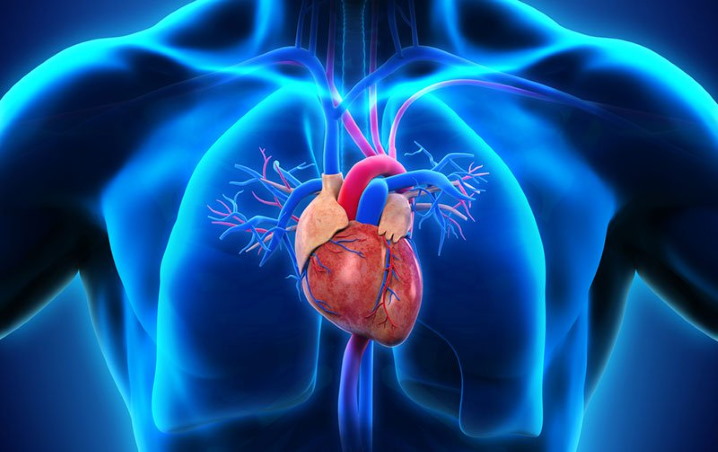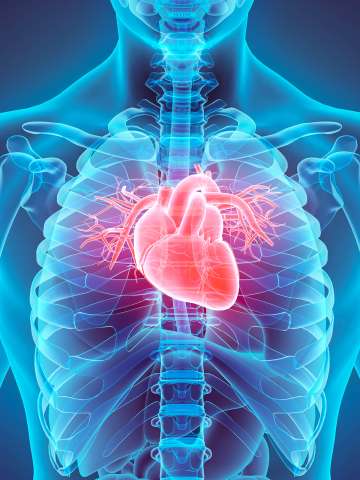Recognizing the Relevance of Cardiology in Modern Medical Care Providers
Cardiology plays a critical role in modern healthcare, particularly as heart problem continues to be the leading source of death worldwide. Advances in diagnostics and therapy have actually transformed client care, enabling earlier interventions and boosted end results. The change towards preventive cardiology empowers people to handle their health and wellness proactively. As technology proceeds to advance, the combination of ingenious solutions might better redefine cardiology's effect on public health and wellness, prompting a more detailed assessment of emerging trends and their effects.
The Occurrence of Heart Problem and Its Influence on Public Health And Wellness
Although heart problem remains the leading reason of death globally, its effect extends much beyond specific clients to affect public wellness systems and economic climates. The high prevalence of heart condition places a significant strain on medical care resources, requiring increased funding for avoidance, treatment, and recovery programs. Public health efforts have to deal with danger factors such as weight problems, smoking cigarettes, and less active way of lives, which add greatly to the increasing occurrence of heart conditions.Moreover, the financial burden connected with heart problem is immense, including not just straight clinical costs but likewise indirect costs associated to shed performance and early death. Communities face difficulties in handling these prices, usually resulting in differences in medical care accessibility and results. As the populace ages and lifestyle-related threats continue to escalate, the urgency for effective cardiology interventions becomes vital. Subsequently, resolving cardiovascular disease is not just an issue of specific wellness yet additionally a crucial public health priority.
Developments in Cardiac Diagnostics and Imaging Techniques
Current advancements in cardiac diagnostics and imaging methods have revolutionized the area of cardiology, boosting the capability to keep track of and spot heart diseases. Strategies such as cardiac MRI, CT angiography, and echocardiography have come to be progressively advanced, providing thorough pictures of cardiac frameworks and functions. These methods enable the early recognition of conditions like coronary artery disease, heart failing, and valvular disorders.Moreover, developments in non-invasive diagnostics, such as wearable technology and remote surveillance devices, have actually empowered people and doctor. These devices help with real-time monitoring of heart rhythms and other essential indications, leading to prompt interventions. Furthermore, expert system is being incorporated into imaging evaluation, improving precision and performance in diagnosis.
Technologies in Treatment Choices for Heart Issues
Recent improvements in cardiology have resulted in substantial developments in therapy alternatives for heart disease. These consist of innovative surgical methods that boost step-by-step outcomes and emerging drugs that offer new opportunities for treatment. As the area develops, these advancements play an essential role in enhancing individual treatment and end results.
Advanced Surgical Techniques
Developments in surgical methods have changed the landscape of cardiology, offering new expect individuals with heart disease. Minimally intrusive procedures, such as catheter-based interventions, have significantly minimized healing times and health center keeps. Techniques like robotic-assisted surgical procedure enhance precision, allowing cosmetic surgeons to navigate complex anatomical structures with greater accuracy. Furthermore, developments in imaging innovation help with real-time visualization during procedures, improving outcomes. Transcatheter aortic valve replacement (TAVR) exhibits an innovation in dealing with aortic constriction, making it possible for shutoff substitute without open-heart surgical treatment. In addition, hybrid approaches that integrate medical and catheter-based techniques provide tailored options for different cardiac concerns. These sophisticated medical strategies not just boost patient safety and security but likewise expand therapy options, underscoring the crucial role of advancement in contemporary cardiology practices.
Arising Medicines and Treatments
As the landscape of cardiology proceeds to progress, emerging therapies and medicines play a crucial duty in boosting treatment options for heart disease. Innovations such as novel anticoagulants and progressed lipid-lowering representatives have changed the monitoring of heart diseases, substantially decreasing individual morbidity and death. In addition, the development of gene treatments and regenerative medicine supplies encouraging opportunities for treating conditions formerly regarded permanent. Professional tests are continuously exposing the efficacy of these treatments, pressing the borders of typical therapies. The assimilation of electronic wellness innovations helps with individualized medicine, allowing for tailored treatment plans based on genetic and way of life elements. Jointly, these innovations highlight the vibrant nature of cardiology, enhancing patient results and redefining requirements of care in modern-day healthcare.
The Role of Preventive Cardiology in Patient Treatment
Preventative cardiology plays a crucial role in individual treatment by focusing on the recognition of risk variables that add to heart problem. Via way of life adjustment strategies and very early detection strategies, medical care service providers can properly minimize the occurrence of cardiovascular events - Cardiology. This proactive approach not just improves patient end results yet also advertises long-term health
Threat Variable Recognition
While cardio diseases remain a leading cause of morbidity and mortality worldwide, reliable danger aspect identification acts as a cornerstone of precautionary cardiology. Identifying risk aspects such as high blood pressure, diabetes, hyperlipidemia, and family members background is necessary for early intervention. Medical care professionals use various screening methods to review these aspects, enabling for customized safety nets. In addition, comprehending a look at this site person's lifestyle selections, such as cigarette smoking and physical inactivity, additionally educates risk analyses. This complete assessment makes it possible for clinicians to establish customized care strategies targeted at mitigating dangers. By focusing on threat aspect identification, medical care systems can boost individual results and reduce the overall burden of cardiovascular illness, eventually adding to enhanced public wellness strategies and source allotment.
Way Of Living Alteration Methods
A wide range of research studies highlights the important duty of way of life adjustment strategies in reducing cardiovascular condition danger. These approaches include nutritional changes, enhanced exercise, cigarette smoking cessation, and weight management. By taking on a heart-healthy diet plan abundant in fruits, veggies, whole grains, and lean proteins, individuals can reduce cholesterol levels and high blood pressure. Regular physical task reinforces the heart and enhances overall cardiovascular wellness. In addition, quitting cigarette smoking greatly decreases the danger of cardiovascular disease and enhances healing rates for those with existing problems. Weight management even more adds to cardio wellness by minimizing various other danger elements such as diabetes mellitus and hypertension. Applying these way of living changes not only advertises specific well-being yet also functions as a foundation of preventative cardiology in person treatment.
Early Discovery Strategies
Way of life modifications substantially add to decreasing cardiovascular condition risks, however they are most efficient when coupled with early discovery methods. Preventive cardiology emphasizes the relevance of determining prospective heart problems prior to they intensify right into severe problems. Strategies such as blood stress monitoring, cholesterol screening, and progressed imaging innovations like echocardiograms play essential functions in examining cardio health and wellness. Biomarkers and hereditary screening also boost the accuracy of very early discovery, permitting customized preventive strategies. Normal heart danger examinations encourage health care service providers to intervene proactively, possibly find out here preventing cardiac arrest and strokes (Cardiology care). By integrating these very early discovery methods right into routine care, individuals can benefit from prompt way of life interventions and targeted treatments, inevitably boosting and enhancing outcomes lifestyle
Integrating Innovation Into Cardiology Practices
As innovations in innovation proceed to reshape numerous areas, the combination of ingenious devices and systems right into cardiology practices has actually ended up being crucial for improving individual care and next outcomes. Telemedicine platforms allow cardiologists to monitor individuals from another location, improving access to care while decreasing the concern on healthcare centers. Wearable gadgets, such as smartwatches, allow continuous heart rate tracking, signaling both medical professionals and people to possible problems in real-time. Additionally, artificial intelligence (AI) is being used to examine vast amounts of heart data, aiding in very early medical diagnosis and customized treatment plans. Advanced imaging techniques, consisting of 3D echocardiography, improve visualization of heart structures, bring about extra exact interventions. Digital wellness records (EHRs) improve person information administration, making certain that cardiologists have prompt accessibility to vital information. Together, these technical advancements are transforming cardiology, promoting proactive management and improved wellness results for patients with cardiovascular problems.
The Significance of Client Education And Learning and Involvement
Client education and learning and involvement play a pivotal duty in the management of cardiovascular health and wellness. By equipping clients with understanding about their problems, therapy alternatives, and way of living changes, doctor empower individuals to take an energetic role in their treatment. This aggressive strategy can cause improved adherence to prescribed medications, nutritional adjustments, and exercise programs, ultimately decreasing the threat of complications.Engagement also fosters a strong patient-provider partnership, urging open communication and trust. When people really feel educated and included, they are more most likely to voice issues and ask concerns, which can result in much better medical outcomes. In addition, academic resources, such as workshops or electronic platforms, can boost understanding and advertise self-management techniques. On the whole, focusing on person education and learning and involvement is essential for improving cardio wellness, enhancing quality of life, and lowering health care prices connected with heart diseases.
Future Patterns in Cardiology and Their Possible Influence

Regularly Asked Inquiries
What Way Of Life Modifications Can Reduce Heart Problem Threat?
The present question addresses way of living modifications that can significantly reduce heart problem danger. Cardiology care. Adopting a well balanced diet regimen, taking part in regular exercise, preserving a healthy weight, handling tension, and staying clear of tobacco can notably enhance cardiovascular wellness
Exactly How Can I Identify Early Indicators of Heart Issues?
Identifying early indicators of heart issues entails tracking signs and symptoms such as breast discomfort, shortness of breath, tiredness, and irregular heartbeat. Prompt awareness of these indications can prompt needed clinical examination and treatment for better results.
What Are the Differences Between Cardiologists and Cardiac Surgeons?
The differences between cardiologists and heart surgeons hinge on their duties; cardiologists mainly manage and identify heart disease through non-invasive techniques, while heart surgeons carry out operations to correct structural heart problems. Each plays an essential, distinct function.

Exactly how Commonly Should I Obtain My Heart Health And Wellness Checked?
The frequency of heart checkup differs based upon individual risk variables. Normally, adults need to go through examinations every one to 2 years, while those with status quo might require even more regular assessments as suggested by health care professionals.
What Duty Does Genetics Play in Cardiovascular Disease Danger?
Genes considerably influences cardiovascular disease danger, with domestic patterns suggesting acquired conditions. Details genes can incline individuals to high blood pressure, cholesterol issues, and various other cardiovascular issues, highlighting the importance of hereditary screening in examining heart health. Heart illness remains the leading cause of fatality worldwide, its influence extends much past individual people to affect public health and wellness systems and economic situations. Public health efforts must deal with threat factors such as weight problems, smoking cigarettes, and sedentary way of lives, which add greatly to the increasing occurrence of heart conditions.Moreover, the financial burden connected with heart illness is tremendous, encompassing not only direct clinical prices but also indirect costs associated to shed performance and premature mortality. Precautionary cardiology plays a necessary duty in patient care by focusing on the identification of danger aspects that add to heart condition. Fabricated knowledge (AI) and machine knowing are improving diagnostics and client tracking, allowing very early discovery of heart illness. The distinctions in between cardiologists and cardiac specialists exist in their functions; cardiologists mostly identify and handle heart conditions with non-invasive methods, while cardiac surgeons perform surgical treatments to deal with architectural heart concerns.